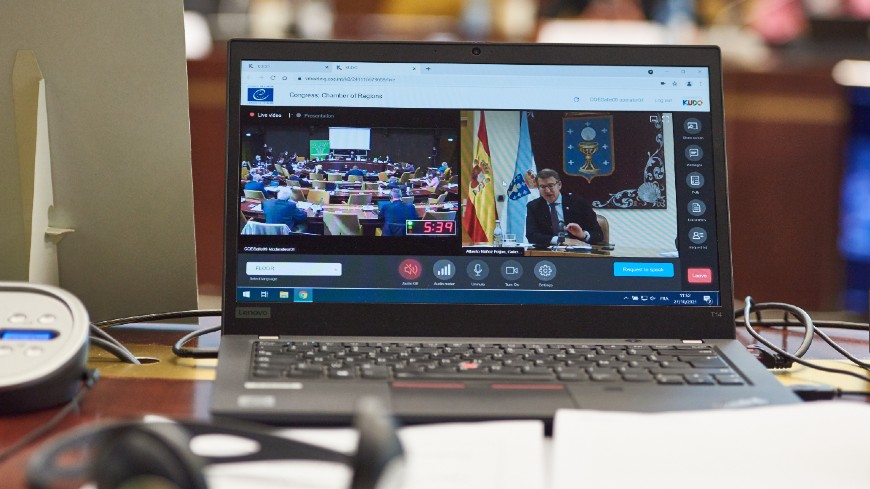Formed in the course of history, diasporas of citizens originating from the same region who went to live in another country are a cultural, economic and demographic asset for their regions of origin. For that very reason, some regions have chosen to strengthen links with their former inhabitants now living elsewhere and sometimes even to encourage them to return home. Alberto Nunez Feijoo, president of the Galician regional government (Spain), presented the policy pursued by his region in this area to the Chamber of Regions.
Over 500 000 of the 2.6 million Spaniards living abroad originate from Galicia, itself a land of crossroads and encounters, such as the pilgrim routes leading to its capital, Santiago de Compostela. "There are 200 Galician communities in 50 countries around the world, and in them there are 225 000 Galicians who were not born in Galicia but have family origins there", he explained. This diaspora is established chiefly in South America and certain European countries. "Geographically speaking, we are a small region but one that has a very strong cultural identity", said Mr Nunez Feijoo, "and we have always maintained links with our fellow citizens who have gone to live in distant places". In fact, this is a legal obligation for the region, which has set up a Council of Galician Communities in this connection.
The region can offer aid to Galicians living abroad: those who currently benefit the most from this are the Galicians living in Cuba and Venezuela but it also goes to diaspora members in Argentina, Uruguay and Brazil and is particularly beneficial for the elderly. But beyond the emotional, cultural and historical ties, Galicia is also keen to see some of its former inhabitants or their descendants come back, irrespective of whether or not they have Spanish nationality. "We pay grants to young people who come to study here or help families to find jobs and housing, while providing them with free health care", said the president of the Galician government. At present, there are 3 000 families who have come back to live in Galicia and benefit from such aid; those who do not yet have Spanish nationality can obtain a residence permit enabling them to immediately start working. In the demographic crisis gripping the country, the return of Galicians from abroad is helping to boost the regional population by several tens of thousands.
The example of Galicia shows how maintaining links between the region of origin and the diaspora can be an important factor in development, said the president of the Chamber of Regions, Harald Sonderegger (Austria, EPP/CCE) when opening the debate. In fact, 73% of the world's States have institutions and bodies devoted to maintaining relations with their diaspora. Many European countries are both a host country for diasporas and a home country for citizens who leave, like Turkey, a fact pointed out by Gunes Pehlivan (Turkey, SOC/G/PD) who stressed in this connection that "living in a diaspora is still easier for men than it is for women". Hanna Zamazeeva (Ukraine, ILDG) saw members of diasporas as "ambassadors", for both their host country and their country of origin, which were also co-operating through them: in Turkey, for example, was building housing for its nationals in Ukraine.
"Diasporas are bridges between the host country and the country of origin", said the Albanian youth delegate Ilda Methasani, who saw the maintaining of links as an opportunity for both countries, although too many departures could impoverish the country of origin. Finally, Reinhardt Rohr (Austria, SOC/G/PD) presented an initiative launched by the Land of Carinthia, of which he was governor, which had made it possible to set up a worldwide association of Carinthians - "Weltkärtner" - aimed at strengthening bonds and exchanges between this diaspora and its region of origin.




